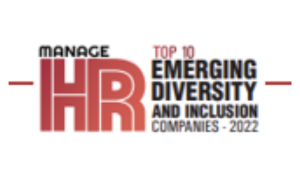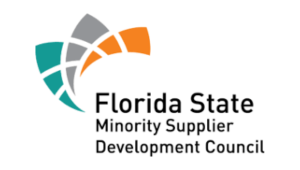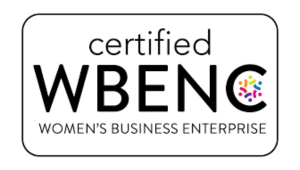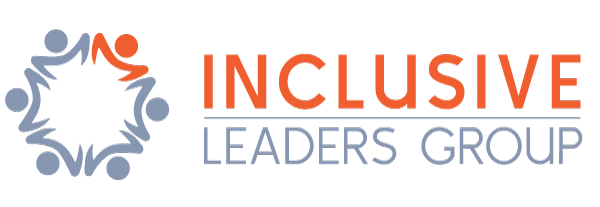This year, 2024, has been described by HR executives as “the year of disengagement” as studies show that 85 percent of employees are not engaged or are actively disengaged at work. As organizations reimagine their employee experiences in response to internal and external pressures, it’s become more important than ever to hear directly from employees to learn exactly what they need.
An Inclusive Workplace Builds Engaged Employees
Creating an inclusive employee experience requires a comprehensive approach that spans recruitment, onboarding, promotion, mentorship, and empowerment through access. By adopting these strategies, organizations can build a more engaged, innovative, and productive workforce where all employees feel valued and included. As we move forward, it is crucial to continue evolving our practices and ensuring that inclusion remains at the heart of our organizational culture.
This comprehensive approach to an inclusive employee experience not only enhances individual and organizational performance but also contributes to a more equitable and just workplace. By focusing on recruitment and selection, onboarding, promotion, mentorship and sponsorship, and empowerment through access, organizations can create environments where all employees thrive.
Why a DEI Audit is Essential For an Inclusive Employee Experience
What is a DEI audit?
So, what’s a DEI audit all about? It takes a good look under the hood of your organization, examining the people, culture, systems, and challenges. Basically, it’s a diagnostic process blending data, surveys, and assessments to reveal what’s running smoothly and what needs a bit of fine-tuning.
The aim of a DEI audit is to identify areas where the organization is excelling and areas that require improvement in promoting diversity, ensuring equity, and fostering an inclusive environment for all employees.
At Inclusive Leaders Group we use surveys, interviews, listening sessions, and focus groups to:
Evaluate Current Policies and Procedures: Identify any gaps or areas for improvement in your existing policies and procedures to ensure they support diversity, equity, and inclusion (DEI).
- Assess Programs and Initiatives: Review the effectiveness of your current DEI programs and initiatives and provide recommendations for enhancement.
- Training and Development: Analyze your training programs related to DEI and suggest ways to improve their impact and reach.
- Perform Benchmarking and Best Practices: Compare your DEI efforts with industry best practices and benchmarks to identify areas where you can lead or learn from others.
- Provide Feedback and Recommendations: Collect and analyze feedback to understand perspectives and experiences related to DEI within your organization.
Following Your DEI Audit: 7 Ways Leaders Can Create an Inclusive Employee Experience
- Get all employees to believe in your organization’s values – promote your company values as an employee’s sense of connection to their organization is fabricated on belonging and the belief that they’re part of an environment that knows and values them.
- Build an organizational identity that promotes transparency – promoting authenticity means employees are allowed to express themselves and contribute from their exclusive perspectives and experiences.
- Regularly assess and adapt – Creating an inclusive employee experience is not a one-and-done task; it’s an ongoing commitment that requires regular assessment and adaptation. As recruiters, founders, and hiring managers, your role in this ongoing continuous listening process is to ensure that your organization remains dedicated to fostering inclusivity at every level.
- Periodic assessments are crucial for understanding how well your diversity and inclusion initiatives are working and where improvements are needed. Consider conducting regular surveys and collecting feedback from employees about their experiences within the organization. Make sure these surveys are anonymous to encourage open and honest responses.
- Welcome people from all backgrounds and celebrate their differences – appreciate differences and provide an environment of belonging where individuals can feel relaxed being themselves at work.
- Create and support Business Resource Groups (BRGs) – Create a safe space for employees to discuss shared interests, identities, languages, etc.
- Promote inclusive leadership – Creating an inclusive employee experience extends beyond the realm of recruitment; it hinges on the behaviors and attitudes demonstrated by leadership within your organization. Recruiters, founders, and hiring managers, you play a pivotal role in promoting inclusive leadership, setting the tone for your entire workforce. Inclusive leadership begins with embracing diversity as a fundamental value. It’s not just about ticking the diversity box or meeting quotas; it’s about recognizing the rich tapestry of backgrounds, perspectives, and experiences that your team members bring to the table. Leaders should be champions of these differences, understanding that diversity is a wellspring of innovation, creativity, and adaptability.
Final Thoughts
HR and Culture leaders and teams are on the front lines when it comes to the employee experience. You may be considering that you need external DEI expertise to address the cultural issues your workplace is facing.
Inclusive Leaders Group’s consulting solutions move beyond simple DEI consulting. Our experienced certified DEI consultants partner with your HR or Culture teams to conduct valid and reliable assessments that address your company’s unique challenges effectively and help your team stay proactive in order to provide an employee experience that all talent can feel welcomed, respected, and can thrive.
At Inclusive Leaders Group, we are positioned to meet your organization wherever you are on your DEI journey to help create a more inclusive employee experience. Contact Inclusive Leaders Group today!








